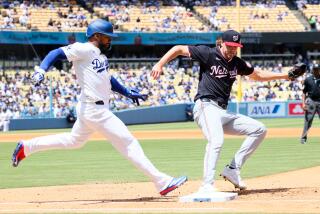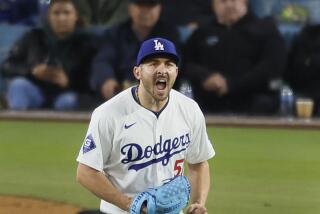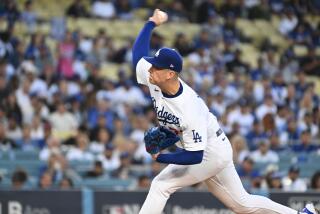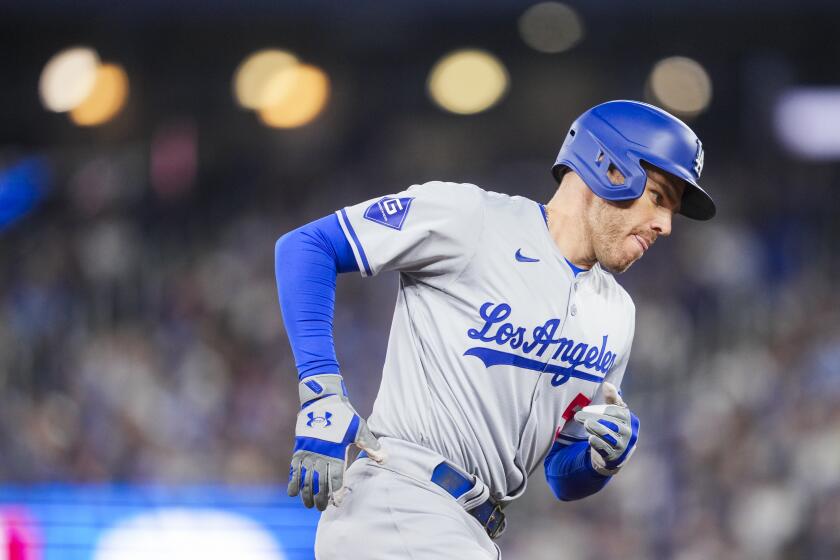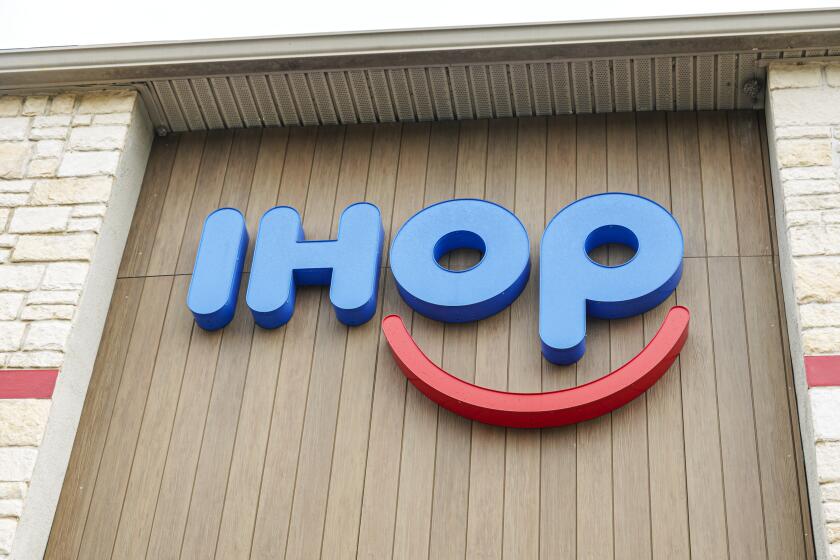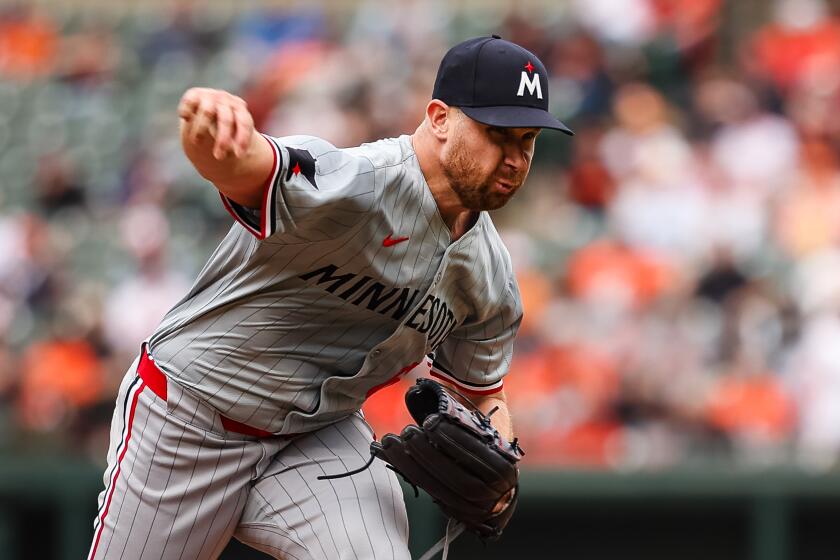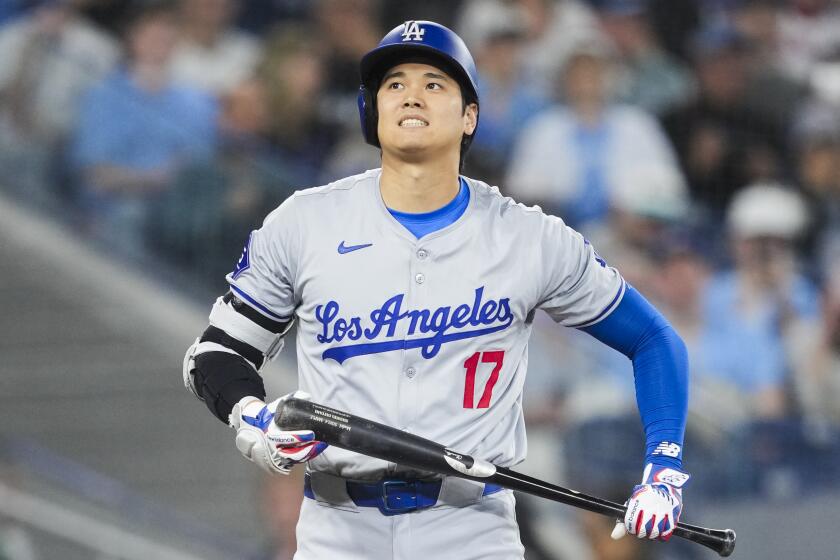Dodgers feel a sense of relief with 2-1 win over Diamondbacks
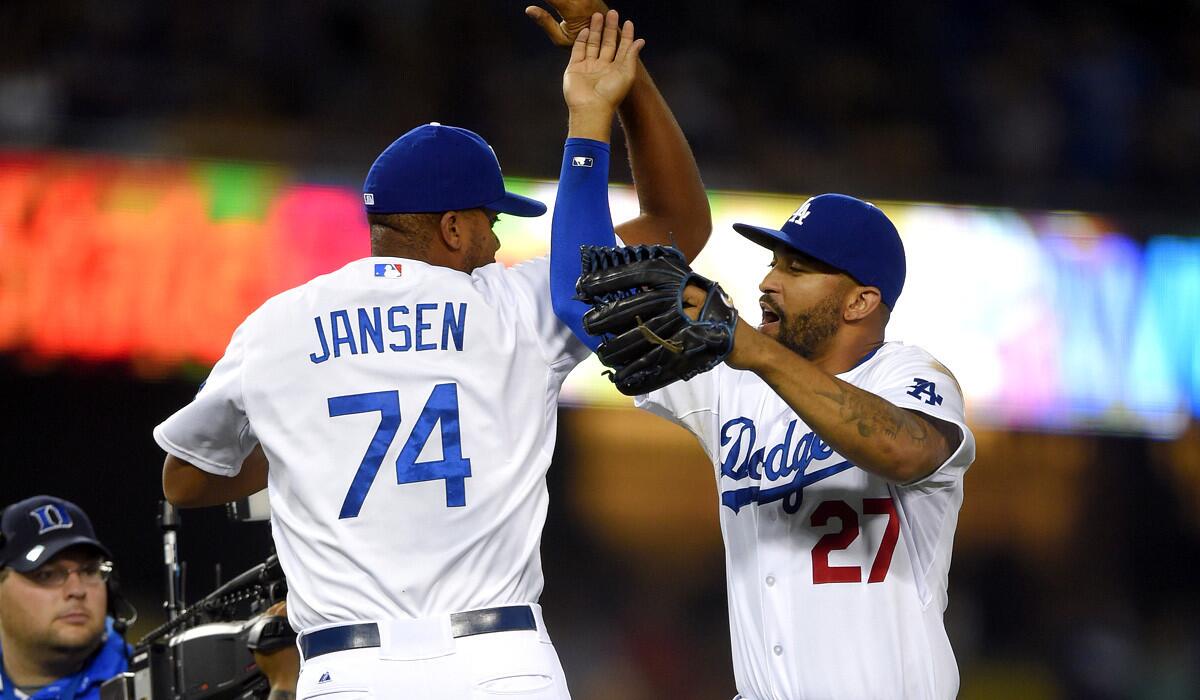
For Kenley Jansen, his save to close out the Dodgers’ 2-1 victory over the Arizona Diamondbacks on Friday night was no ordinary save.
The save was not only his 40th of the season, it came in the Dodgers’ first game after he blew a ninth-inning lead in an eventual 14-inning defeat to the Washington Nationals.
“If you want to do this job for a long time, you just can’t worry about a situation like Wednesday,” Jansen said. “It hurt, but you have to be able to move on from it.”
Jansen had only one regret about what unfolded Friday night: When he received the game ball, he tossed it into the stands at Dodger Stadium.
“I should have kept that ball,” he said. “But you know what? That kid will enjoy that ball.”
Jansen anchored a bullpen that protected a one-run lead for three innings in relief of starter Dan Haren, who limited the Diamondbacks to one run and four hits over six innings.
Playing a significant role in the victory was Pedro Baez, who, like Jansen, was a former position player in the Dodgers’ minor league system.
Whereas Jansen was converted from catcher at age 21, Baez was transformed from a third baseman into a pitcher at 25. That was only last year.
Baez retired the side in the seventh inning, then struck out Cliff Pennington to record the first out of the eighth, lowering his earned-run average to 1.56.
J.P. Howell and Brian Wilson recorded the last two outs of the eighth inning to set up Jansen.
With the victory, the Dodgers’ lead over the San Francisco Giants in the National League West remained at two games.
The Dodgers are concerned about the Giants, enough so they made changes to their rotation in anticipation of a three-game series against them at AT&T Park next weekend.
Hyun-Jin Ryu and Zack Greinke have traded places in the rotation, with Ryu now scheduled to face Arizona on Saturday. Greinke will pitch the series finale against the Diamondbacks.
By making the move, the Dodgers will avoid starting the left-handed Ryu and Clayton Kershaw on consecutive days against the Giants. The way they are lined up now, Ryu would start the series opener in San Francisco on Sept. 12, followed by Greinke and Kershaw, in that order.
“Our main reason was splitting the lefties,” Mattingly said.
However, like the majority of Dodgers’ games this season, approximately 70% of local households won’t be able to watch that series, the result of the dispute among Time Warner Cable and rival pay-television distributors.
On his Friday visit to Dodger Stadium, departing Commissioner Bud Selig said the television blackout was unforeseeable.
“I’m sometimes very hard on myself, and I’ll think back to events that have happened and thought, ‘Could you have done that better, what should you have done?’” Selig said. “I was saying the same thing relative to the Dodgers, but this is just one of those things that’s happened in life, and no, I don’t think you could have predicted it.”
Selig’s office approved the Dodgers’ 25-year, $8.35-billion deal with Time Warner Cable, which has been unable to convince other cable providers to pick up its new Dodgers-specific channel.
Selig said his office has “done as much as we can do” to end the dispute, but declined to offer details.
Selig, who will retire at the end of the year, will leave a mixed legacy in Los Angeles. He backed former owner Frank McCourt’s purchase of the team, but also forced McCourt to sell the team.
Asked where he ranked McCourt’s removal as Dodgers owner among the achievements of his 22-year tenure, Selig replied, “Good question. I’m always a diplomat, but let me say to you that I worried a lot about this franchise and I’m damned proud of where it is today. It’s really remarkably good, given everything we went through. That was, for me, a sad chapter. The only thing I’ll say is that I constantly regard baseball as a social institution with social responsibilities. It’s a quasi-public institution, and you can even debate quasi. And so I’m always extremely sensitive about situations where that’s not the case. The Los Angeles situation for me was a very, very difficult one. But all is well that ends well, and this one has ended really, really, really well.”
Twitter: @dylanohernandez
More to Read
Are you a true-blue fan?
Get our Dodgers Dugout newsletter for insights, news and much more.
You may occasionally receive promotional content from the Los Angeles Times.

